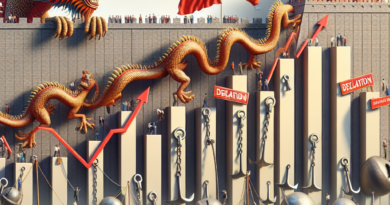China's troubles cast a shadow on the markets. What happens today?
Asian markets are set to end the session mostly higher today, even as China's real estate woes continue to cloud sentiment.
Chinese stocks and the Hong Kong index were mixed, but are ending trading with a plus sign.
Japan's financial center is closed for holidays.
Wall Street also entered the Thanksgiving holiday period.
More than half of the stocks traded on the New York Stock Exchange rose Wednesday night.
All three major indexes recovered from Tuesday's losses, with the yield on the benchmark 10-year Treasury bond briefly falling to its lowest level in two months.
The US market, which has priced in the possibility of another rate hike in December, was unaffected by strong weekly jobs data that could dampen prospects of a quick rate cut by the Federal Reserve, strategist Redmond said Wong.
In the commodities sector, oil prices extended losses after OPEC+ postponed a ministerial meeting from November 26-30.
The slippage fueled expectations that manufacturers may cut production less than expected.
Today, the release of flash global PMIs for November should help investors assess recession risks and how quickly rate cuts will begin.
The eurozone PMI is already below the number 50, suggesting that economic activity is contracting.
The same holds true in Great Britain, while the US manufacturing PMI for October contracted sharply.
Meanwhile, China's economic woes remain among the topics most followed by investors, with new, less than heartening rumors regarding the relaunch of the world's second largest power.
read also China in crisis and investors on the run, $25 billion in shares dumped Why the Chinese crisis still worries the markets Demonstrating the unresolved real estate problems in China, Bloomberg had already reported last Wednesday that Beijing had listed Country Garden Holdings, burdened with debt , in a provisional list of 50 developers for whom funding would be provided.
The new rumor is that shadow banking giant Zhongzhi Enterprise Group Co.
has revealed deep financial difficulties, telling investors it has a $36.4 billion deficit and is insolvent.
The private asset manager said liquidity has dried up and the amount recoverable from asset disposals is expected to be low, according to a letter sent to investors Wednesday seen by Bloomberg News.
Zhongzhi first sparked concern in August after one of its affiliated trust companies failed to make payments to clients on high-yield investment products.
The group's financial difficulties add to the challenges of President Xi Jinping, grappling with a real estate crisis and a weak economy.
read also China invests billions in the chip sector: this is how Beijing distances itself from the USA




